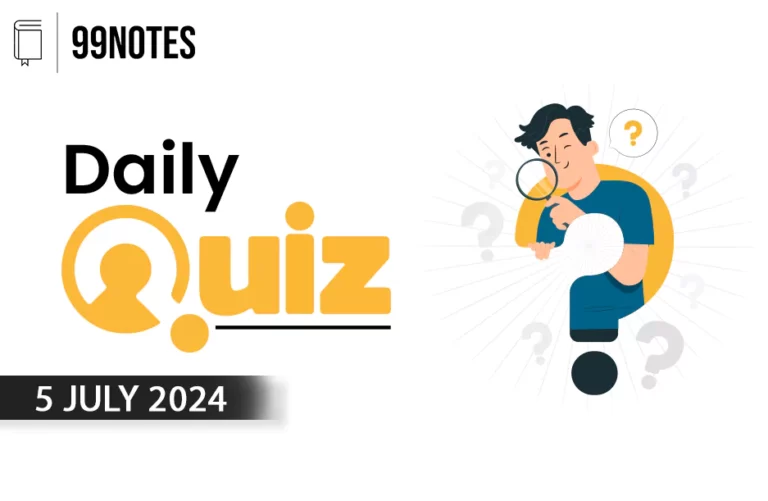1 March 2025 : Daily Answer Writing
MAINS MODEL QUESTION: 01st MARCH 2025
- MAINS MODEL QUESTION: 01st MARCH 2025
- Q1) The rule of law and judicial review are interdependent, as one cannot truly exist without the other. In this context can judicial review be considered the most important aspect among those that constitute the basic structure of the Constitution? (15 marks, 250 words)
Q1) The rule of law and judicial review are interdependent, as one cannot truly exist without the other. In this context can judicial review be considered the most important aspect among those that constitute the basic structure of the Constitution? (15 marks, 250 words)
ANSWER
Judicial review is the power exerted by the judiciary to examine the actions of the legislatures, executive and administrative arms of Government and to ensure that such actions conform to the provisions of the Constitution.
Through the process of review, the judiciary upholds the rule of law and ensures that there is no violation to its principles. This is the interdependence of judicial review and rule of law.
ARTICLE 13, 32 AND 226 READ WITH ARTICLE 142 FORMS THE “MAGNA CARTA” OF THE CONSTITUTION.
- In Raj Narain vs. Indira Gandhi, 1975, the Supreme Court while invalidating 39th Constitutional Amendment held that the power to judicial review forms a part of Basic Structure of the Constitution and cannot be taken away by any Amendment, Act, Statute or Regulation.
- The same was reiterated in I.R. Coehlo Judgement, where the Supreme Court held that all laws put in the Ninth Schedule after 24th March, 1973 (Basic Structure Judgement) shall be liable to judicial review by the Courts and are not immune to judicial scrutiny.
WHY JUDICIAL REVIEW IS THE MOST IMPORTANT ASPECT OF THE CONSTITUTION
- Prevents Overpowering of any Branch: Through the process of judicial review, the Courts can ensure that neither the executive nor the legislature becomes overpowerful or despotic in working and functioning which is a threat to the rights of the citizens. For example, in Raj Narain vs. Indira Gandhi, 1975, the Supreme Court prevented the elections of the Prime Minister, Speaker and President from being immune to judicial review as it might have an impact on free and fair elections.
- Protection of Rights: Judicial review ensures that the rights and privileges of the citizens are well-protected and evolves according to the needs and demands of the society. It also ensures that no action of executive or legislature shall be in contravention to the fundamental rights of the citizens. For example, in Navjot Singh Joher vs. Union of India, the constitutional validity of Sec 377 of Indian Penal Code was challenged and eventually it was decriminalized and was held to be unconstitutional as it abridges the provisions of Article 14, 19 and 21 of the Constitution.
- Supremacy of the Constitution: Since judiciary is seen as the bulwark, guardian and protector of the Constitution, judicial review ensures that the Supremacy of the Constitution remains. For example, in Kesavanand Bharati Case, 1973, the Supreme Court upheld that there are certain features of the Constitution which cannot be amended by the Constitutional Amendments.
- Maintenance of Federal Equilibrium: Judicial review also helps the judiciary to maintain a scrupulous balance of power between the Centre and the States, thus upholding the federal equilibrium. For example, Article 131 helps the Supreme Court to solve disputes between the States and Centre.
- Source of Independence of Judiciary: The power of judicial review ensures that the independence of the judiciary is protected. For example, in the recent NJAC case, the Supreme Court declared NJAC to be unconstitutional and void.
- Governance Gaps: Through judicial review and activism, the judiciary ensures that gaps in executive and legislative functioning are plugged effectively. For example, through Vishakha Judgement, 1997, the judiciary filled up the gap to provide for guidelines to prevent sexual harassment at workplaces. Later, the Parliament passed the Sexual Harassment of Women at Workplace (Prevention, Prohibition and Redressal) Act, 2013.
However, there is a thin line between the powers of judicial review and judicial
overreach which can lead to the following issues:
- It can lead to breach of separation of powers leading to the destruction of the fine ‘constitutional balance’ between the three organs.
- While judicial activism strengthens the people’s confidence, the very act of ‘overreach’ destroys it as it appears an act of ‘tyranny of un-elected’ in a democracy where elected representatives rule.
- Decimation of ‘trust’ between different organs which is highly detrimental for public welfare.
As the Indian Constitution is the synthesis of USA’s Judicial Supremacy, and British’s Parliamentary Supremacy, the rule of law and judicial review in India become interdependent. Thus, judicial review is essentially required for establishment and protection of rule of law which is the axis of an ethical and legally consistent society.
Read more- MAINS MODEL QUESTION: 28 th FEBRUARY 2025




